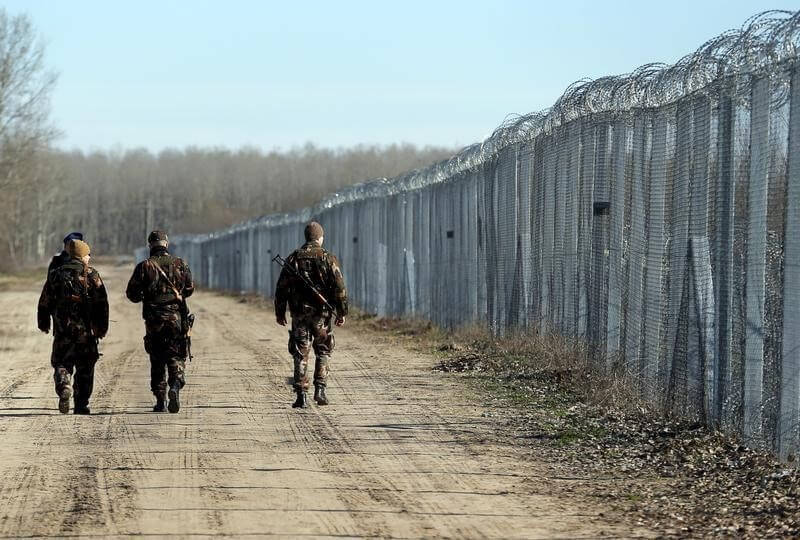By Gergely Szakacs
BUDAPEST (Reuters) – Emboldened by Britain’s shock vote to quit the EU, Hungary’s leader Viktor Orban is forging ahead with his own referendum on migration, in what European diplomats see as a sign of battles to come with anti-Brussels populists across the continent. The 53-year-old Orban, in power since 2010, has clashed several times with the EU on issues ranging from independence of the courts and the central bank to his handling of the migrant crisis, which has included a fence on Hungary’s southern border. His next clash pits him against an EU Commission plan to resettle refugees across member states based on quotas, which Orban sees as an act of out-of-touch Brussels bureaucrats usurping national authority. “We need to fight to prove to people that it is possible to form an EU migration policy that is in line with the Hungarian national interest,” Orban said days after the Brexit vote.
“This is going to be a long struggle for which I will need a strong mandate, which cannot be ensured without a referendum,” said Orban, who is in favor of remaining in the EU but wants more powers for member states. Orban has enlisted allies, such as neighboring Slovakia, which also opposes the quotas and this week joined a chorus of eastern EU states calling for the powers of the EU Commission to be reined in after Britain’s vote to leave. “We have a big problem with the proposed reform of the Dublin system,” Slovak Prime Minister Robert Fico said.
“We think it’s stupid, because this is exactly what will keep dividing Europe if (countries) will be asked to pay 250,000 euros ($277,000) for each migrant they refuse to take.”
Hungary’s migrant referendum, due in the autumn, could coincide with Britain starting its EU exit negotiations. Critics describe the timing as opportunistic.
“Euroskeptic parties across the continent are cherry-picking parts of the Brexit story to bolster their own domestic narrative,” said Otilia Dhand, an analyst at Teneo Intelligence.
“Orban has said that it is the ‘failure of EU migrant policies’ that nudged UK voters to vote Leave – downplaying the fact that we’re talking two completely different migrant issues: Syrian refugees on the continent vs. Polish workers in the UK.” The EU migrant relocation scheme was established last year after more than a million people entered the EU, most intending to settle in Germany and other rich northern countries. The EU is discussing a change to asylum rules that would require member states to accept a quota of refugees or pay a penalty for them to be housed elsewhere. Hungary was the main arrival point into the EU’s border-free Schengen zone for migrants traveling by land, until Orban shut the frontier with the new fence last year, a popular move at home that was criticized by rights groups. He and other eastern European leaders say their comparatively poor countries should not forced to settle migrants lured to the bloc by more liberal policies of richer states. Germany, which argued for the resettlement, says the entire bloc must act to solve a common problem. “REBELLIOUS CURRENT”
Orban has said the migration crisis could drive more countries out of the EU. His government will ask Hungarians: “Do you agree that the European Union should be able to prescribe the mandatory settlement of non-Hungarian citizens in Hungary without the consent of parliament?” On Thursday, Orban’s chief of staff, Janos Lazar, went further, becoming the first senior government official to say he would be in favor of leaving the EU altogether, although he said that was only his personal opinion. Foreign diplomats say that despite such rhetoric, a “Huxit”, or Hungarian exit from the EU, still seems unlikely. Hungary depends on EU funds, and Hungarians, a generation removed from Communist dictatorship, are still mostly keen on membership. “I ask the people around me: if you ever meet a Hungarian who would rather go back to Siberia from where the Hungarians are coming from, rather than stay in the EU, I will buy champagne for him and treat him to a special lunch,” one diplomat said. “So far, no one showed up.” But diplomats also see Orban’s position as part of a “rebellious current” in Europe that has seen Dutch and French euroskeptic leaders calling for referendums on EU membership. The referendum tactic could poison debate. “This referendum is not good,” said another diplomat. “You can handle the bad ideas with the right means, and this is maybe the most destructive means of all. This can have a damaging effect on Hungary. “Okay, maybe the EU is a little sick, maybe the EU has got a flu. But I am not going to cure the flu with chemotherapy. And this is what Orban seems to be trying with this criticism. And Brexit can strengthen politicians like him all around Europe.” Charles Robertson, Global Chief Economist at Renaissance Capital, said Orban was successfully tapping the public mood.
“The Brexit vote, swung to Leave by the immigration debate, is a powerful rejection of the status quo by the electorate,” he said. “Orban captures that zeitgeist better than most.” (Amends paragraph 12 reference to financial penalties for EU countries that do not take in refugees, making clear this is still a proposal and not yet final.)
(Additional reporting by Tatiana Jancarikova in Bratislava; editing by Peter Graff)
Hungary’s migrant referendum shows Europe’s post-Brexit challenge

By Gergely Szakacs















